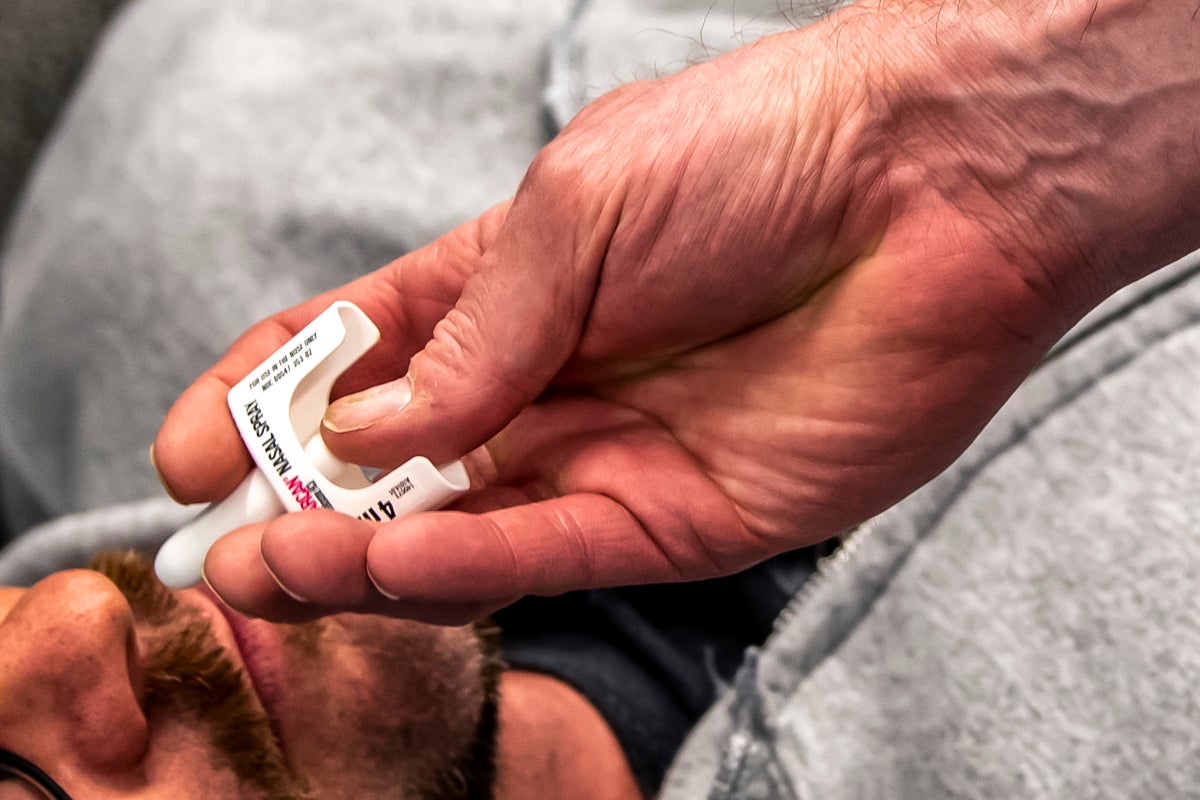
U.S. health advisers on Wednesday were weighing whether the overdose-reversal drug naloxone should be made available as an over-the-counter medication to help fight the national opioid crisis.
A panel of experts to the Food and Drug Administration will vote on the switch late Wednesday afternoon, following hours of presentations and discussions on whether untrained users can follow the instructions to use the antidote in emergency situations.
The brand under review, Narcan, comes as a nasal spray and is the leading version of the drug. The panel vote is a nonbinding recommendation and the FDA will make a final decision on the drug in coming weeks.
Moving naloxone, which is also available in various injectable versions, over the counter is the latest government effort to increase use of a medication that has been a key tool in the battle against a U.S. overdose epidemic that kills more than 100,000 people annually. The decades-old drug can counteract the effects of an opioid overdose in minutes.
Narcan is already available without a prescription in all 50 states, where state leaders have issued standing orders for pharmacists to sell the drug to anyone who asks for it. But not all pharmacies carry it and those that do must keep it behind the counter. Also, the stigma of opioids can discourage people from asking for the drug.
“We believe that nonprescription naloxone may help address these barriers,” said FDA's Dr. Jody Green, noting the switch would allow the drug to be sold in vending machines, convenience stores and supermarkets.
Community advocates and organizations that support making naloxone widely available welcomed the possible approval of an over-the-counter version, but still had concerns.
“It’s a step in the right direction,” said Ryan Hampton, a Las Vegas advocate for people who use drugs. “We also want to make sure that those existing streams of naloxone aren’t eliminated because folks will be saying, ‘Hey it’s OTC, so we don’t want to provide it to you at the same level we did before.’”
Maya Doe-Simkins, a co-director of Remedy Alliance/For The People, said an over-the-counter version of Narcan could also lead to a perception that it’s better than other forms of naloxone.
Narcan manufacturer Emergent Biosolutions presented results from a 70-person study designed to show that people of various ages and backgrounds could correctly use the drug on someone having an overdose. About a third of people in the study had low reading ability, a key concern for the FDA.
But FDA staffers flagged several concerns with the company's study ahead of the meeting. A number of participants had trouble following the directions, in part because of the way the instructions were laid out across multiple sides of the carton, FDA noted. The agency recommended putting all steps on a single side of the carton.
FDA reviewers also said the study conditions didn’t reflect the emergency situations in which naloxone is used. For instance, study participants had unlimited time to review the instructions before answering questions about how to use the spray.
Government officials hope that moving naloxone beyond the pharmacy counter will boost sales, with the potential to lower costs. Currently the drug can cost $50 for a two pack, when not covered by insurance.
U.S. overdose death rates began steadily climbing in the 1990s, driven by painkillers. Waves of deaths followed, led by other opioids like heroin and — most recently — illicit fentanyl. Nearly 107,000 Americans died of drug overdoses in 2021, an all-time high, though recent data suggests deaths may be plateauing.
Gaithersburg, Maryland-based Emergent Biosolutions makes most of its money from medical products purchased by the federal government for the Strategic National Stockpile, including drugs and vaccines against anthrax.
In 2021, the company came to the public's attention for its disastrous handling of COVID-19 vaccine production for Johnson & Johnson and AstraZeneca. Contamination problems at the company’s Baltimore plant ultimately forced the drugmakers to discard the equivalent of hundreds of millions of vaccine doses.
___
Associated Press writer Geoff Mulvihill in Cherry Hill, New Jersey, contributed to this story.







